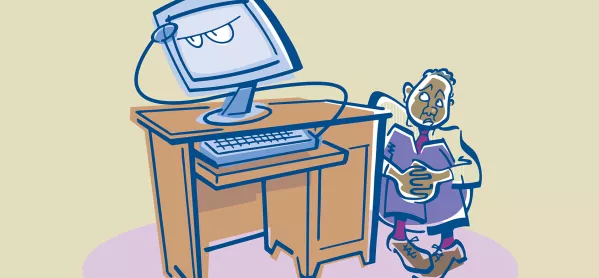Concerns are emerging that the failure of many teachers to get to grips with new technology is leaving their students at a major disadvantage - and could even worsen the attainment gap between rich and poor.
Meanwhile, a Tes Scotland Twitter poll has suggested that nine in 10 teachers feel they do not have the tools they need to make the most of the technology in their classrooms. That result chimed with last week’s Learning Through Technology conference in Edinburgh, which provides an annual litmus test of how technology is being applied in classrooms.
Midlothian Council digital learning guru Tommy Lawson argued that technology has the potential to personalise learning and get parents more involved in their children’s education than ever before.
But Charlie Love - who is driving forward digital learning in Aberdeen schools - summed up the feeling of many when he said: “The world has moved on in terms of its use of technology and social media but there has been very little change in the classroom.”
‘The digital divide’
A number of speakers at the event in Edinburgh said that the “digital divide” in education no longer refers purely to the gap between pupils who have access to tablets and smartphones and broadband, and the have-nots. Now, the term is also being used to describe the emerging gulf between teachers who embrace technology in their classrooms and those who do not - and concerns are being expressed that those teachers risk seriously disadvantaging their pupils.
Alan Horberry, headteracher at Banff Academy in Aberdeenshire, said: “Over the last two decades a digital divide has been growing in the sense that many professionals have forged ahead with digital learning, but there is a significant number who have not, and that is manifested in the youngsters’ experiences.”
Helen Gorman, a science and technology faculty head seconded to Stirling Council to promote digital learning, said there is a “big difference between teachers in terms of their confidence with technology”. She added: “We are not getting an equitable high-quality experience for every learner.”
Brian Clark, an education officer for digitals skills at curriculum development and inspection body Education Scotland, said it was aware of “a need for equity across the local authorities”.
Some of the potential pitfalls of new technology were highlighted last week at the AGM of Scotland’s biggest teaching union, the EIS, where concerns were raised that groups of parents were using social media to bully teachers.
This is an edited version of an article in the 15 June edition of Tes Scotland. Subscribers can read the full article here. To subscribe, click here. This week’s Tes magazine is available at all good newsagents. To download the digital edition, Android users can click here and iOS users can click here.




